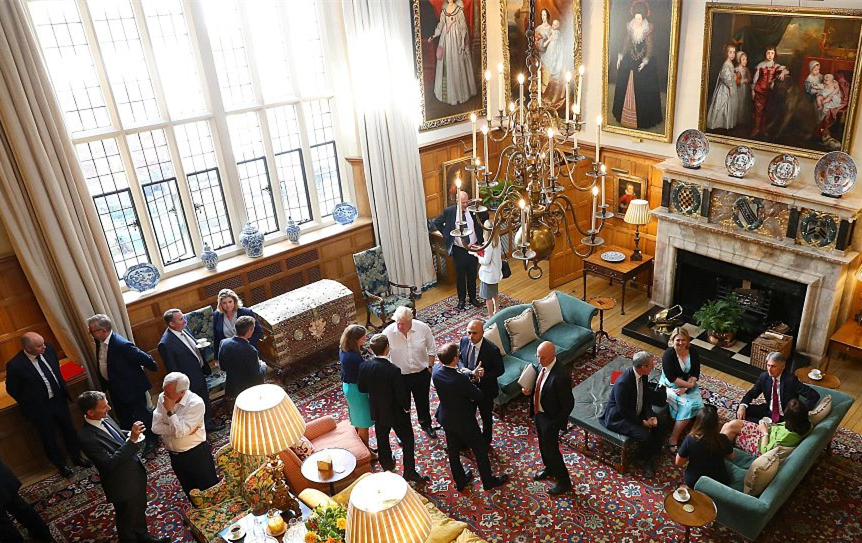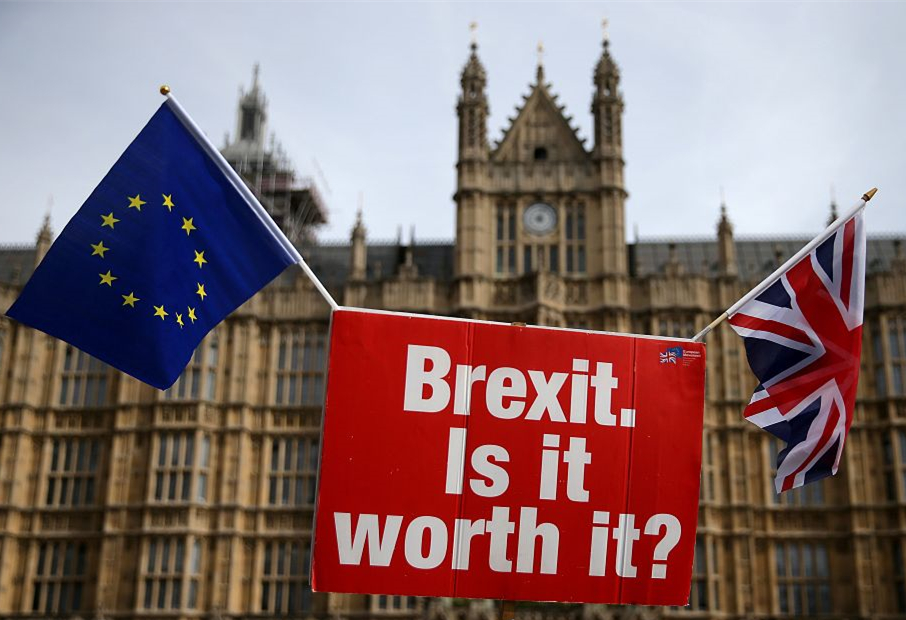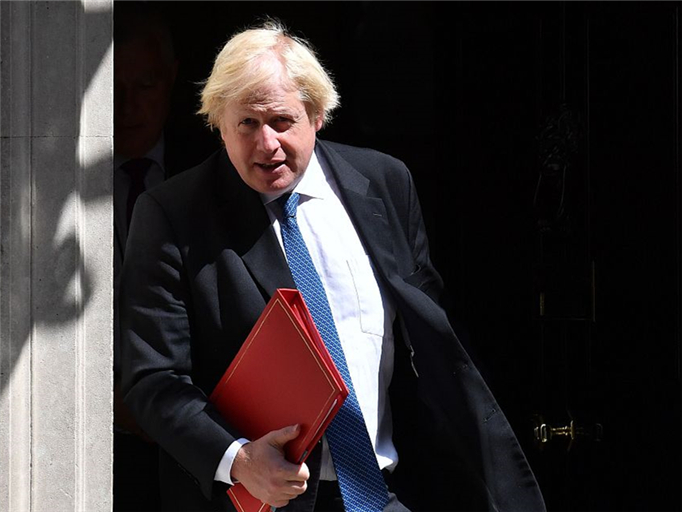
Members of Britain's Prime Minister Theresa May's cabinet mingle in the Great Hall at the Prime Minister's rural country residence, Chequers, west of London, July 6, 2018. (Photos: VCG)
“A suicide vest”
In the Mail on Sunday, Boris Johnson attacked Theresa May's Brexit plan, saying "we had wrapped a suicide vest around our constitution and handed the detonator to Brussels". The former Foreign Secretary said the Chequers plan, proposed by PM May, would keep Britain subject to EU rules and would prevent the country from seeking ambitious trade deals. "At every stage of the talks so far, Brussels gets what Brussels wants," wrote Johnson.
Foreign Office Minister Sir Alan Duncan criticized his former boss, saying the article was "one of the most disgusting moments in modern British politics." While writing in the same paper, the current Foreign Secretary Jeremy Hunt called for people to rally behind May, backing her to hold the line and win the best deal for Britain.
The Chequers plan has sparked criticism from Brexiteer Tories as well as the EU. Boris Johnson claimed in his resignation letter that the UK was headed "for the status of a colony" if Theresa May's soft Brexit plans were adopted. Johnson wrote that he believed May's new plan amounted to "a semi-Brexit" with large parts of the economy "locked in the EU system, but with no UK control over that system".

Demonstrators protest outside the Houses of Parliament on September 10, 2018, London. (Photo: Daniel Leal-Olivas/ VCG)
The process of Brexit
Brexit has been in progress, since Theresa May triggered the two-year process of leaving the EU on 29 March 2017. In the upcoming key EU summit on 18 October 2018, both sides need to agree outline of future relations to allow time for UK parliament and EU members to ratify deal by Brexit day.
If the deal is not done by October, there will be a fall back option if the two sides still want to reach agreement on the EU summit on 13 December 2018. However, as things stand, deal or no deal, Brexit is due to happen at 11pm UK time, 29 March 2019. To buy more time, the two sides have agreed on a 21-month "transition" period to smooth the way to post-Brexit relations. If all goes to plan, the transition period will then last until midnight on 31 December 2020.
As the date approaching, Brexit is most likely to fall in the following two directions.
Leave with a deal
The UK and the EU both insist they want as amicable a divorce as possible, with a legal agreement setting out the kind of relationship they will have when the UK is no longer a member of the club.
May wants to keep close ties with the EU in certain areas. But it has been attacked as an unworkable compromise by people from both the Remain and Leave ends of the debate.
Leave without a deal
A clean break with the EU. The UK would fall back on its membership in the World Trade Organization (WTO), the global body governing international trade. UK exports to the EU would be subject to the same customs checks and taxes the EU currently imposes on other countries. Those arguing for this option - the so-called "hard Brexiteers" - say it would create a truly independent nation able to strike its own beneficial trade deals around the world. But opponents say it would be catastrophic for British business and warned about chaos at the borders, higher food prices and shortages in the shops.

Boris Johnson.
Who is Boris Johnson?
Boris Johnson has been the Member of Parliament (MP) for Uxbridge and South Ruislip since 2015. He was Mayor of London from 2008 to 2016, and from 2016 to 2018 he served as Secretary of State for Foreign and Commonwealth Affairs.
US President Donald Trump once described Johnson as "a very talented guy" for whom he had "a lot of respect". "I am just saying I think he would be a great prime minister. I think he's got what it takes," he claimed during his visit to Britain in July.
(Compiled by He Jieqiong and Chi Jingyi)
With inputs from BBC, Daily Mail and Xinhua.


